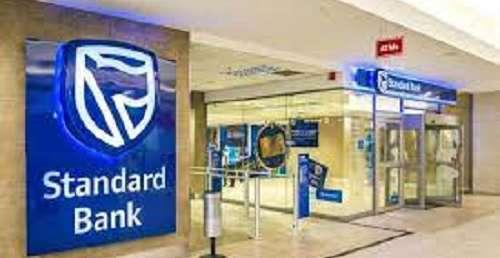
1 minute read
Standard Bank to re-capitalise Stanbic Bank
“It may become necessary for us to inject capital in that business and we will, at the appropriate time,” Chief Executive
O cer, Sim Tshabalala, said in an interview with Bloomberg.
Advertisement
Banks in Ghana are staring at losses after the government restructured GH¢83 billion ($6.8 billion) of local debt as part of a move to nalise a $3 billion bailout from the International Monetary Fund. Standard Bank on Thursday joined FirstRand Ltd in accounting for the impairment. Ghana has an estimated GH¢576 billion of public debt according to the report. Standard Bank said it had set aside 1.5 billion rand ($81 million) to cover potential losses arising from the West African nation’s loan-restruc- turing programme. The bank said its total holdings of both domestic and onshore dollar-denominated bonds was about 2.6 billion rand.
“We believe that the pain that we have taken in Ghana is exquisite,” Mr Tshabalala told Bloomberg.
He added that: “The numbers are very large, but we have a portfolio, and the portfolio is calculated to do that. Notwithstanding the impact of Ghana, our Africa region’s business
Story continues on page 7
Story continued from page 6 performed very well.”
According to Mr Tshabalala, the government of Ghana has been “textbook” in their approach to the restructuring, extracting the appropriate bargain from all stakeholders. “They’ve been very tough in the negotiation process, as you can expect, because they have a public policy role to play,” the CEO said. The government has “extracted what they consider to be the appropriate bargain, which while appropriate from a policymaker and a government point of view, it’s been painful for holders of that debt.”What others did
FirstRand said last week it impaired 496 million rand to cover potential losses. Nedbank Group Ltd., which has an indirect exposure to Ghana through its 20 per cent holding in Ecobank Transnational Inc., estimated its exposure to the country’s sovereign debt at 175 million rand. Despite the challenges, Standard Bank said it remained committed to Ghana. It plans to leverage its “fortress balance-sheet” to drive market share and capitalise on growth opportunities when they arise, it said.










